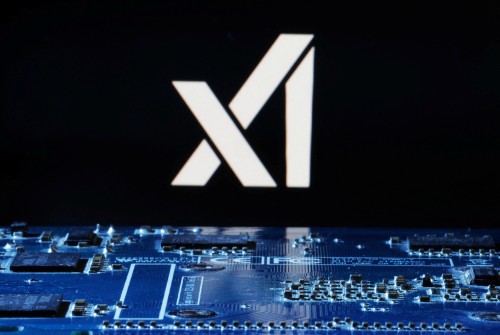(Reuters) -Chip firm Arm is cancelling an architectural license agreement that allows Qualcomm to use its intellectual property to design chips, a person familiar with the matter said, amid an ongoing legal battle between the two companies.
Qualcomm closed down about 4% on Wednesday, while Arm Holdings was down about 6.6%
Arm has given Qualcomm a mandated 60-day notice of the cancellation of a license that allows Qualcomm to design its own chips based on Arm’s computing architecture, said the person, who requested anonymity.
Bloomberg News was the first to report the development.
UK-based Arm, which is majority-owned by Japan’s SoftBank Group, sued Qualcomm in 2022 for failing to negotiate a new license after it acquired Nuvia.
Arm had previously said the design that Qualcomm was planning for Microsoft’s Copilot+ laptops was a direct technical descendant of Nuvia’s chip and it had canceled the license for these chips.
“This is more of the same from ARM – more unfounded threats designed to strongarm a longtime partner, interfere with our performance-leading CPUs, and increase royalty rates regardless of the broad rights under our architecture license,” a Qualcomm spokesperson said in an emailed statement.
“With a trial fast-approaching in December, Arm’s desperate ploy appears to be an attempt to disrupt the legal process, and its claim for termination is completely baseless. We are confident that Qualcomm’s rights under its agreement with Arm will be affirmed. Arm’s anticompetitive conduct will not be tolerated.”
The legal battle between the two tech giants is scheduled to begin in the federal court in Delaware in December.
An Arm victory in the litigation could force Qualcomm and its roughly 20 partners, including Microsoft, to halt shipments of the new laptops. It would also essentially unwind one of Qualcomm’s biggest strategic acquisitions in recent years.
“Following Qualcomm’s repeated material breaches of Arm’s license agreement, Arm is left with no choice but to take formal action requiring Qualcomm to remedy its breach or face termination of the agreement,” Arm said in an emailed statement.
“Arm is fully prepared for the trial in December and remains confident that the Court will find in Arm’s favor.”
Despite the public fight between the two companies that rely on each other for revenue and profit, some investors and analysts believe they will reach a settlement well ahead of the trial.
“If the 60-day cancellation warning were to be enforced, Qualcomm could, in theory, be severely limited in terms of what it could sell, given the importance of ARM architectures to its chipsets, and ARM would lose a chunk of royalty income,” said Russ Mould, investment director at AJ Bell.
(Reporting by Stephen Nellis and Max Cherney in San Franciso; Sameer Manekar, Surbhi Misra, Jahnavi Nidumolu and Zaheer Kachwala in Bengaluru; Editing by Alan Barona, Rashmi Aich and Devika Syamnath)


